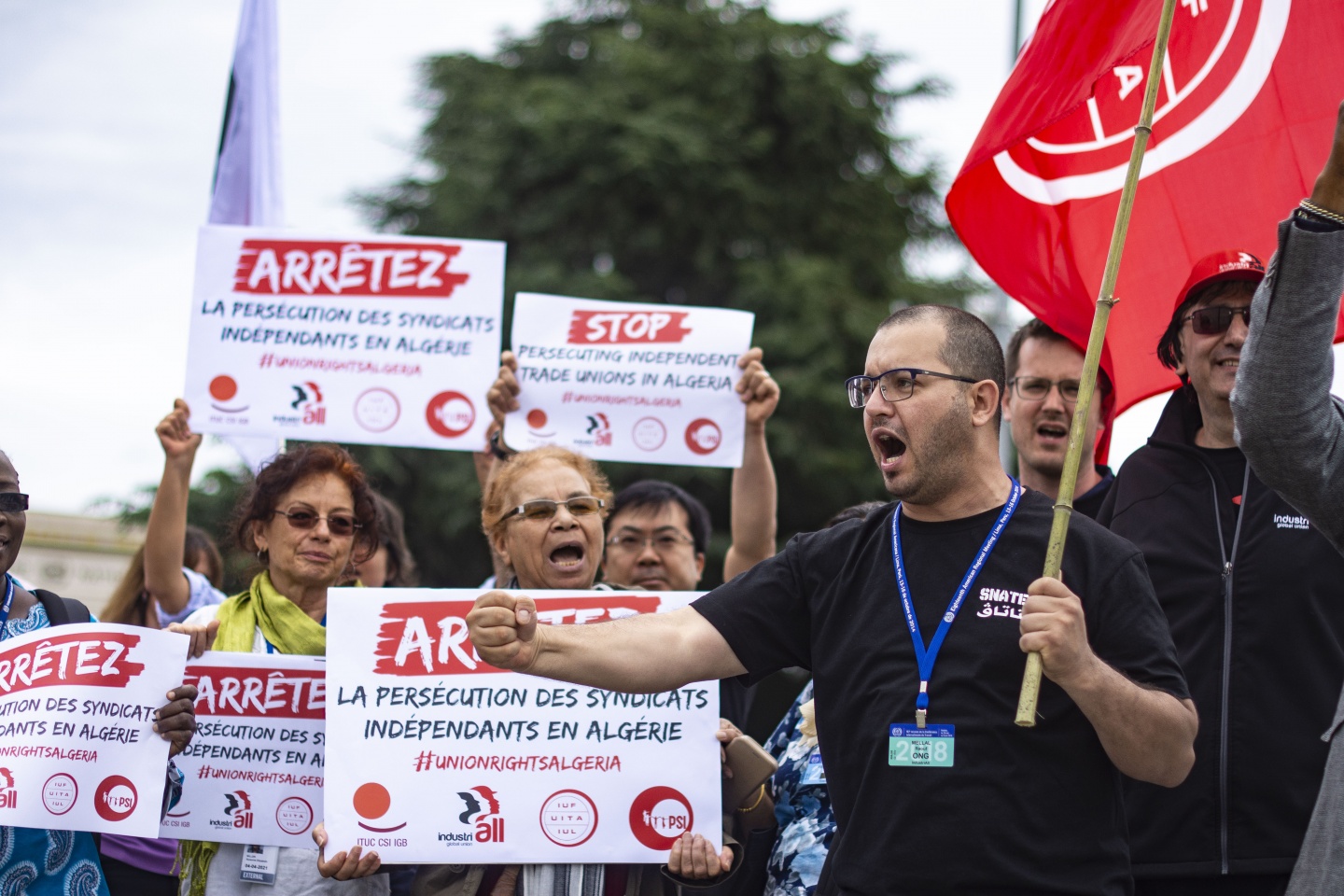20 May, 2019A world in crisis needs a pathway to a better future. Unions can provide it.
Text: Walton Pantland
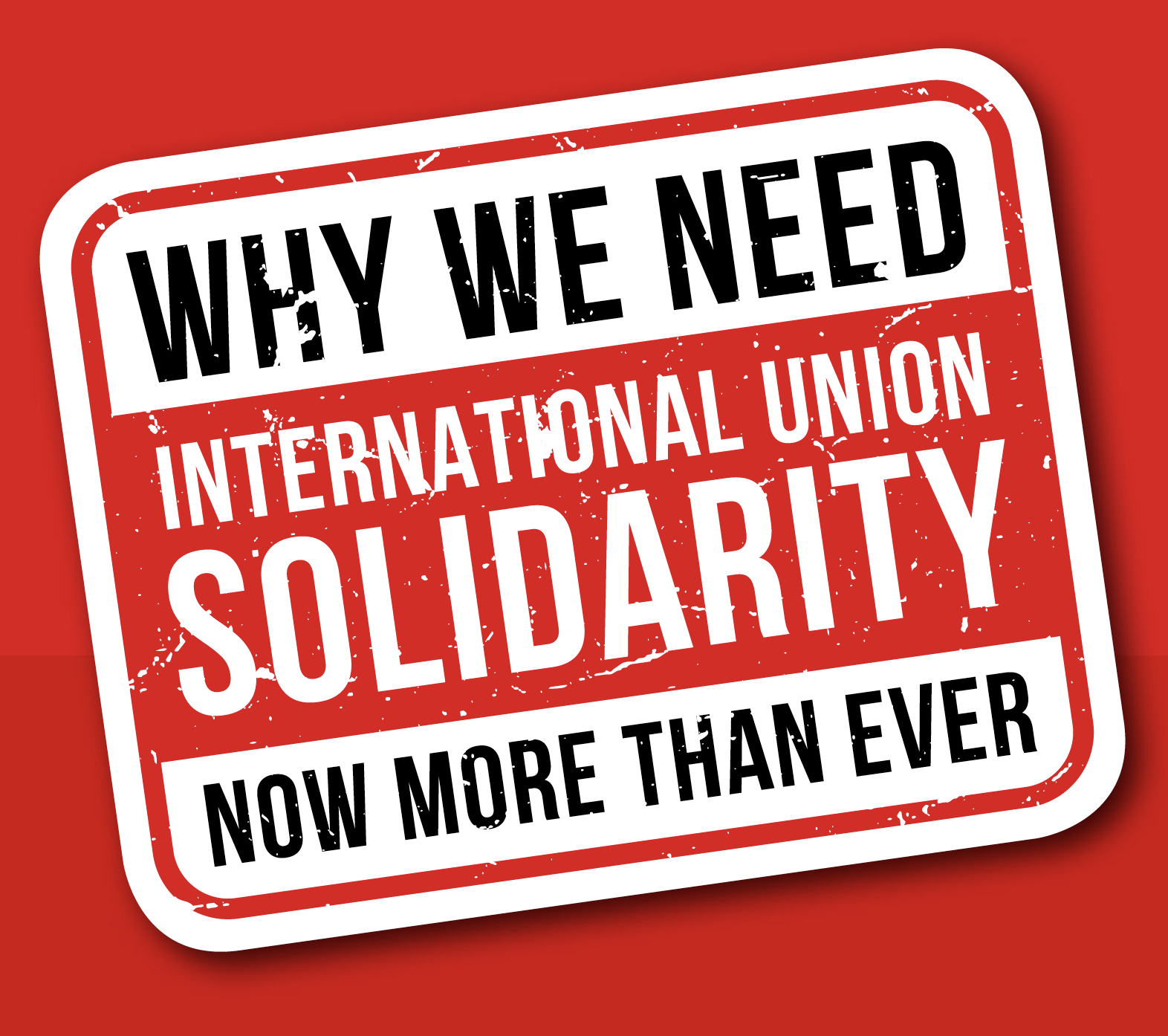
The women form a line outside their factory gate in an industrial park outside Istanbul, and link arms. They are old and young, modern or traditionally dressed, united in the moment. A mobile sound system with a battery powered amplifier starts playing a Turkish folk song.
“Resistance is beautiful!” shouts the young woman at the head of the line, and the dance starts, weaving back and forward, circling around. After being fired for joining a union, the women at Yves Rocher’s Flormar factory danced this dance every day for almost 300 days, in sun and snow, and streamed it live on Facebook, spread it on Twitter and Instagram. And because of networks of global solidarity, their voices are heard in the local community, in the Turkish parliament, at the company headquarters, at the ILO, and at retail outlets in France, Germany, Switzerland and the US.
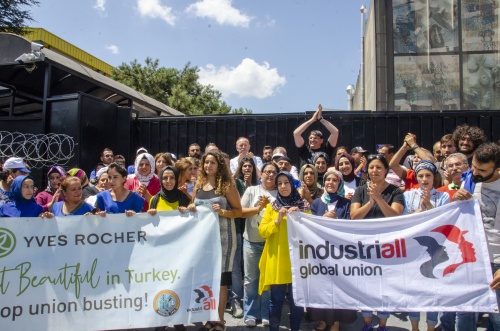
Flormar factory in Gebze, Turkey. IndustriALL
Supported by unions in France, they have taken their picket line to Yves Rochers’ Paris headquarters. This is labour solidarity 4.0, enabled by global structures, amplified by social media, uniting unions and consumers around the world against a pillaging multinational. The picket line has come to your smartphone, tablet or desktop, and you can respond in real time.
Faced with this resolve, the company settles. Money has poured into the strike fund from all over the world, and growing global pressure threatens to damage the brand. It’s an emotional moment as the striking workers sign the deal and agree to a package that includes 16 months of salary.
The voiceless and marginalized have found their collective strength and successfully resisted an assault by a corporate giant. The union dusts itself off and goes back to organizing. It’s just another day on the front line of the global struggle between capital and labour.
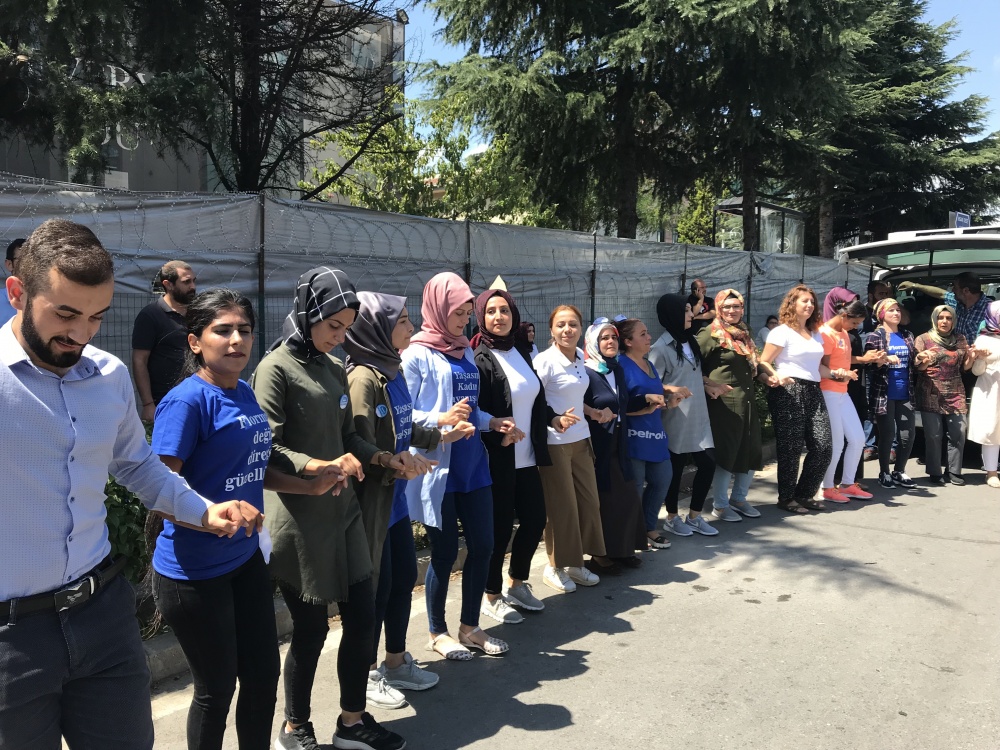
When we stand together, we can win
Flormar factory in Gebze, Turkey. IndustriALL
There are many stories like this: ordinary people standing together in solidarity, finding strength in each other. A victory like this strengthens us, gives us hope, and teaches us lessons on running successful campaigns.
Unfortunately, we have even more stories which don’t have a happy ending. Stories where the company violates rights with impunity, fires union members, cuts corners on health and safety at the cost of workers’ lives. Plants that close because speculators want a quick profit.
Like the three thousand workers at the Grasberg mine in Indonesia who lost their jobs when they became a political football between the company and the government. An international campaign was not enough to change the situation. And there are countless others we don’t hear about because no union even gave them a voice.
A perfect storm of crises
Even when we win, most of our victories are defensive. Sometimes we successfully fight off an assault on our terms and conditions, but we’re not winning a lot of new ground. Labour is on the back foot. Jobs are becoming more precarious. Fewer workers have good pensions. Inequality is growing. Every year, the share of wealth hoarded by a tiny fraction of the super-rich grows, and the share left for the rest of us shrinks. The balance of power between capital and labour has tilted heavily in favour of capital.
The crisis faced by labour is part of a bigger political crisis. The centre ground collapses and the world is polarizing. Instead of working together for shared prosperity, we are competing in a zero-sum game. Institutions that build global consensus – from the UN and ILO through to the EU and global unions – are being undermined.
When the Soviet Union fell in 1991, for the first time in history the world was united in one economic system. The world moved away from any attempt by the state to regulate or control the economy. Markets had won the argument, and reigned supreme. For many, it was a time of great hope, a belief in a future of shared prosperity and an end to conflict, the End of History. Until history reasserted itself with a vengeance when the global financial system crashed.
In 2008, the global economy, and all the old certainties, collapsed. Banks were bailed out and investors were protected – at the expense of working people, who have now endured a decade of austerity that has torn apart the fabric of society. A new breed of disruptive, parasitic disaster capitalism makes cash from chaos rather than productive activity.
By saving the global economic system, we risk destroying the future. As the developing world is subsumed into the global economy at a breakneck pace, people in the industrialized West, for the first time, expect their children to be worse off than them. The arc of progress has ended, and the global order is collapsing. As the political centre spins out of control, things fall apart, and corporations and right-wing populists fill the gap.
We are living through a perfect storm of crises, interconnected and feeding off each other: climate change, the erosion of democracy, grinding proxy wars, refugees, fake news, conspiracy theories, jobs reduced to gigs before being automated out of existence.
We have 12 years to dramatically reduce our carbon emissions if we want to preserve any quality of life on Earth. Plastic pollution fills our seas and has entered our food chain, and climate change is wreaking havoc: floods, heatwaves and other extreme weather events are costing lives and billions of dollars. Climate protesters are being arrested for shutting down cities, but still the political response is inadequate and the most powerful man in the world denies climate science.
Democracy is being undermined, societies are polarizing and fascism is on the march again. As nation states lose power, calls to nationalism grow. The world’s biggest multinational companies have annual budgets far exceeding that of many countries. National governments have dwindling power to influence their behaviour, and they are reduced to a beauty contest and race to the bottom to provide the lowest wages and the most favourable tax rate for the best infrastructure.
Conflict rages around the world, fuelled by growing military budgets, making weapons development a booming industry. Democracy is collapsing under the weight of social media enabled populism, and truth is lost to conspiracy. Labour standards are eroded as work becomes precarious.
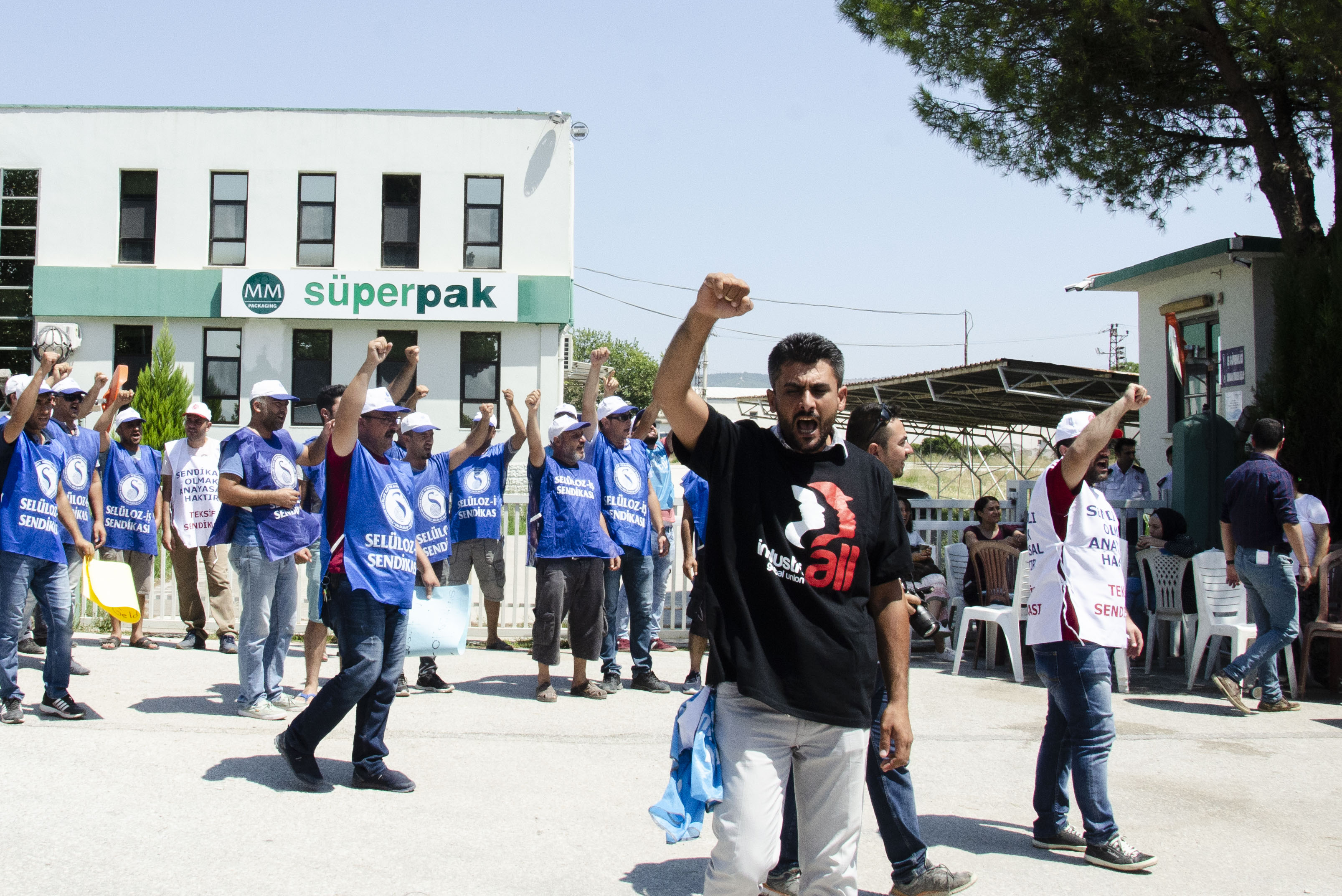
We need new forms of union organization, and new internationalisn. The global union movement is all we have, the only counterpoint to global capital.
Strike at Mayr-Melnhof in September 2018, Izmir, Turkey. IndustriALL
We need new forms of union organization, and a new internationalism. The global union movement is all we have, the only counterpoint to global capital.
Strike at Mayr-Melnhof in September 2018, Izmir, Turkey. IndustriALL
The politics of despair
New forms of media mean that we are exposed to more news than ever before, unmediated, immediate: we feel like we are present as every event unfolds. This leaves us feeling overwhelmed and powerless. It is difficult to get a measured assessment of the world – we exist in a constant state of crisis. Instead of blaming corporations and a global economic system that prioritizes growth over people, right wing populists blame immigrants and foreigners. Working class people feel alienated from distant elites, but it is the Right who are speaking for them.
Right wing populist governments – in the US, UK, Israel, Brazil, Hungary, Turkey, India and elsewhere – are turning away from global alliances and looking inward: Make America Great Again, Take Our Country Back, Brazil above everything, God above everyone. As global development erodes local identities, identity reasserts itself in the most reactionary way.
The labour movement has yet to come to terms with the future of work. When the first unions were formed, workers were gathered in factories and we recruited at the factory gate. But as supply chains have lengthened, work has been outsourced and made precarious, and unions represent a shrinking core of permanent workers.
Capitalism is global, but our responses are still national. Workers are encouraged to distrust each other, and the version of events given by their own management and national politicians gets precedence over the accounts of labour violations reported by unions in other countries. But if the diagnosis is complicated, the prescription is simple: we need to reassert the human right to dignity at work. We need new forms of union organization, and a new internationalism. The global union movement is all we have, the only counterpoint to global capital.
A politics of hope - the union path to a fairer world
Whatever happened to “another world is possible”? The focus on crisis means that people don’t hear the good news – the small, undramatic ways in which we make the world better. Every time we sign a global framework agreement (GFA), we win a commitment from a company to do better, to establish industrial relations at an international level.
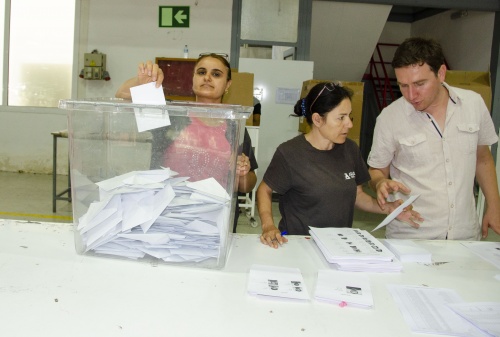
Union vote at Akar Tekstil in September 2018, Izmir, Turkey. IndustriALL
We are everywhere. Unions are the biggest democratic organizations in the world. Our members mine the minerals and the iron ore, produce the steel, create the components, assemble the cars and the ships, the mobile phones and the washing machines. Then break them down and recycle them.
From the bottom of the value chain to the top, union members build and maintain the world. IndustriALL represents 55 million workers, the other global unions many millions more. The ITUC represents 207 million. What other global organizations have this reach, and do so much with so little?
Unlike NGOs or consumer groups, unions have a mandate and democratic legitimacy. Unlike charities and pressure groups trying to solve problems from the outside, unions give people the power to stand together and solve their own problems.
And unlike political parties, unions unite workers regardless of their political views, gender, race, religion or nationality. Whoever you are, whatever your identity, if you work for a living you are united by a common economic interest. This produces inclusive politics rooted in experience rather than ideology: unions give us the opportunity for mass, democratic participation in the economy.
As global instability grows, many people feel a sense of impotence. Unions can provide hope, and a realistic pathway to a better future. This means building alliances with consumer groups and social movements, and speaking to the issues people care about, instead of being perceived as defending a narrow set of interests. We need to be present in the climate movement, in feminism, in all the places where people come together to prefigure a better world. We need to show that we are part of the future, not the past.
But we are only as strong as our unity. We can’t beat multinational companies with national strategies, and we can’t rely on national governments to protect us. All we have is each other. And we can take on multinationals when we organize their workers around the world – especially when we organize the supply chain too.
Organize along supply chains
Distributed global capitalism has long and intricate supply chains that outsource exploitation. Components are manufactured around the world, using just-in-time procurement, and shipped for assembly. The further down the supply chain you go, the lower the standards and the lower the unionization level. An advanced piece of machinery assembled in Europe by workers on good wages with strong union representation contains raw materials extracted from the earth by workers in desperate conditions, and components made by low wage precarious workers in repressive states.
Capital will always seek low wage, low standard countries, because production is cheaper and profit is higher. It is in the interest of unions in developed countries to care about this. Strong unions in developing countries make it harder for companies to undermine labour standards by moving. Organizing only at the top of the supply chain is not solidarity. We need to represent everyone.
The solidarity model
Union development is cyclical. The countries that first experienced the industrial revolution developed the first unions, and fought for the labour standards that we now take for granted. Those standards were incorporated into national law, and into ILO Conventions and other global standards. Although they are under assault now, union victories in the past mean that workers in advanced democracies experience relatively good conditions at work.
Production has shifted to developing countries. Many of them are industrializing for the first time, creating a new workforce from people who were recently subsistence farmers. These workers are exploited in the same way that workers in the West were at the time of the Industrial Revolution, and they are fighting back by building unions where none existed before.
But they don’t have to start from the beginning. They are learning from experience. Unions in advanced countries have resources and expertise, and spending money on union building is an important investment. At the same time, unions in developing countries need to build sustainable structures. To be truly independent, unions need to be funded through the dues collected from their members.
Defending and rebuilding institutions
Unions have always understood internationalism. IndustriALL’s predecessor the International Metalworkers’ Federation was founded in 1893. After witnessing the pointless and destructive horror of a world torn apart by competition and warfare, international institutions like the UN and ILO, non-government organizations like the Red Cross and countless thousands of others were created to build peace and dialogue.
But we are under attack. There is a global trend away from positive industrial relations: since 2012, the employers’ group at the ILO has tried to undermine the right to strike, and across the world, in hundreds of different ways every day, employers are chipping away at a century of labour gains. Workers – especially the young, and women - are bearing the brunt.
We need strong, democratic institutions to counter the power of multinational corporations. Representative institutions translate workers’ activism into structured power. For most of the 20th century, we relied on national governments to manage employment relations by legislating on workers’ rights and responsibilities. The law was a major weapon in the union arsenal. In the 21st century, we need a global legal system. Because capital is global, and countries compete, only globalized labour standards can ensure that workers everywhere can work with dignity.
The most effective way to do this is through the ILO. ILO Conventions represent years of expertise and best practice. When a country ratifies an ILO Convention, it incorporates it into national law. This is why pushing for the ratification of Conventions is such an important part of global union strategy.
The ILO is a hundred years old this year. We need an ILO for the 21st century, with a universal labour guarantee that provides all working people with the core rights of the ILO fundamental principles: freedom from child and forced labour, freedom from discrimination at work, and freedom of association and collective bargaining, as well as the right to a living wage, health and safety at work, and control over working time.
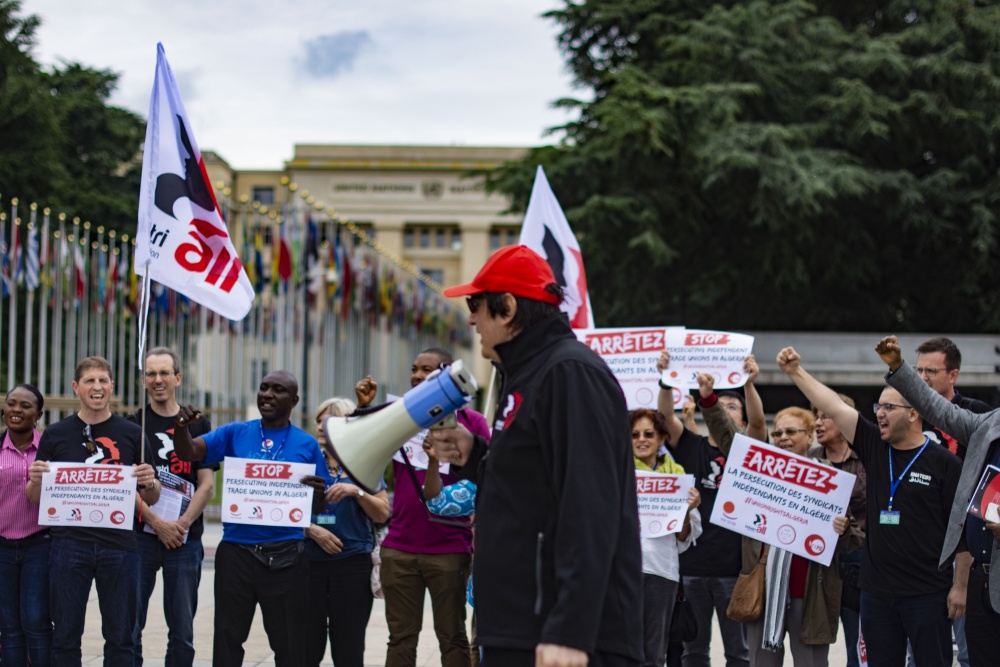
Algeria demonstration in Geneva, June 2018. IndustriALL
Binding global mechanisms
But it is not enough. Global corporations are often more powerful than national governments, and domestic labour law is an inadequate tool. Just as national collective agreements give workers enhanced, negotiated protection, so we need legally-binding global collective agreements.
GFAs contain the nucleus of this idea, reflecting a commitment to establish a global industrial relations standard. But they are not legally-binding instruments: the next generation of GFAs will need to be. The first example of an effective binding global mechanism is the Bangladesh Accord, a legally-binding commitment to improve factory safety. A precedent was set in 2016 when two global brands were taken to arbitration for failing to comply.
This is the future of international industrial relations, and we need to fight for it. IndustriALL is carrying out pioneering work in developing the mechanisms we need to negotiate and enforce binding global agreements, but a lot more will need to be done: agreements must be reached, cases fought and precedents set.
If not us, then who?
A global crisis needs a collective response that competing governments and corporations are unable to give. Despite warm words at Davos and other global meetings, the people in charge have opposing interests and cannot meaningfully work together. To counter the collapse of the centre, we need a people’s international, a global ecosystem of interrelated – intersectional – struggles.
The irony is that capitalism needs unions and strong institutions to create stability through higher wages and better working conditions, ensuring that workers earn enough to buy things and drive the economy.
Taxation recycles surplus capital, keeping it productive instead of hiding it offshore. State institutions provide the physical infrastructure, long term economic planning and support for emerging or changing industries that are necessary to navigate the changing world of work.
The internet, for example, was built on publicly funded research – and an effective and Just Transition to a carbon neutral future, with work and dignity for all, will not be achieved by the private sector.
The future will be built by global consensus. As unions, we are among the most representative organizations in the world. And global unions like IndustriALL link workers, from the shop floor throughout the supply chain, to the companies and institutions with the greatest power to shape our world.
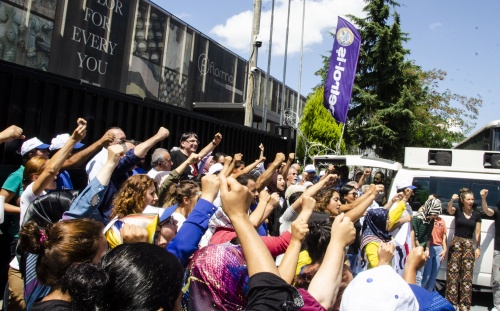
Flormar factory in Gebze, Turkey. IndustriALL
To paraphrase an old saying:
If not us, then who?
If not this way, how?
If not now, then when?
